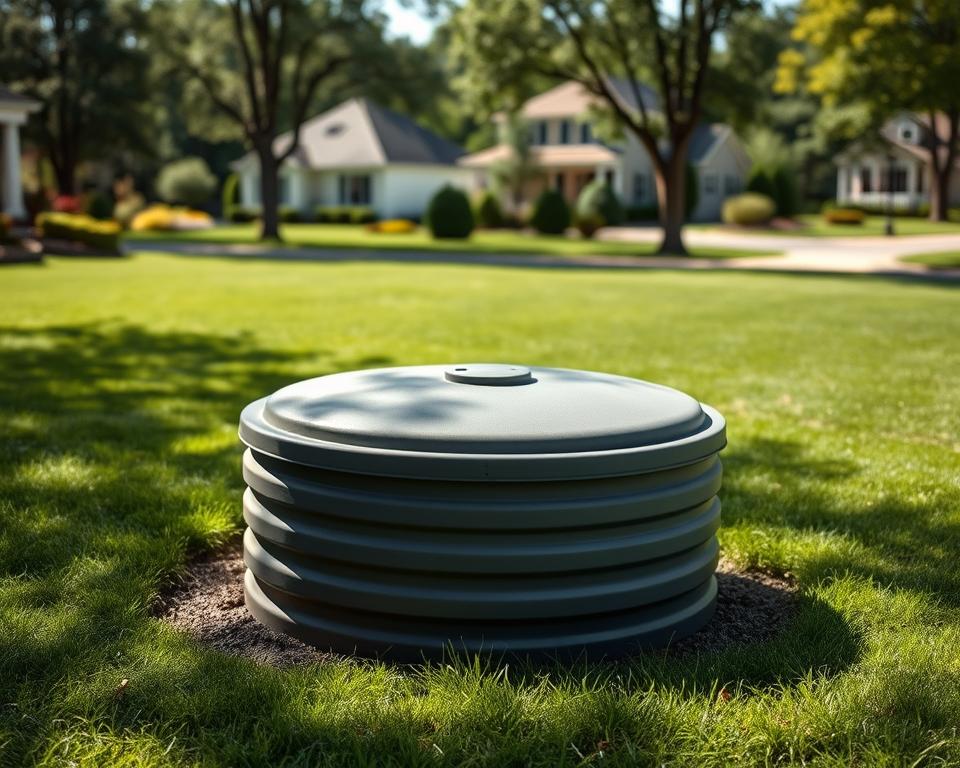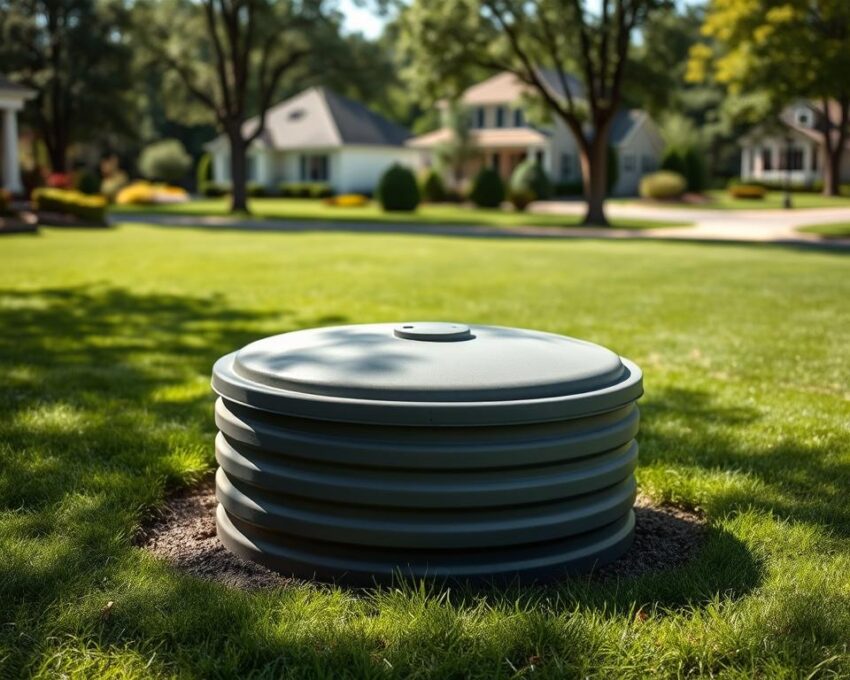Septic Tank Pump Change-Out: A Complete Guide
Have you ever thought about the result of a Septic Tank Pump breakdown? For many, it’s a situation that leads to significant stress and sudden expenses. Noticing the necessity for prompt replacement is crucial in preserving a smooth and sanitary Septic system. By observing consistent reviews, including rapid repair needs, you increase your system’s life while avoiding costly emergencies. Companies like All in Sanitation perform a major part in maintaining your Septic tank operating smoothly. This guide offers a straightforward overview of Septic Tank Pump replacement, detailing warning signs and maintenance tips for septic inspection.
Important Notes
- Understanding the function of a Septic Tank Pump is vital for homeowners.
- On-time Septic Tank Pump replacement can lower overall spending.
- Regular service and cleaning are central to lengthening the lifespan of your Septic system.
- Skilled support can competently oversee Septic system Pump repair and maintenance.
- Identifying first indicators of Pump failure can help prevent expensive fixes.
Understanding Your Septic System
A Septic system is essential for homes without access to town sewer networks. It processes and removes household wastewater responsibly. The Septic tank is core to this system’s functioning, holding a pivotal position in the process.
The Septic tank accepts sewage, splitting solids from lighter matter. This segregation is critical for effective wastewater treatment. The processed water then travels to the drain field, where it gets further filtration by the soil, protecting groundwater.
Knowing how your Septic system operates can prolong its life and efficiency. Routine maintenance is essential for the Septic tank and the system’s overall performance. Homeowners must understand their system’s particulars to reduce ecological impact and avoid expensive fixes.
What is a Septic Tank?
A Septic tank is a subsurface, watertight container essential in household waste management systems. It’s essential to understand the Septic tank’s main purpose: it processes sewage waste storage by conditioning it. This setup functions by separating solids from liquids, fostering basic wastewater treatment and sanitation.
Its operation is powered by naturally occurring microorganisms that break down waste. In places without centralized sewage treatment, Septic tanks are crucial. They retain sewage long enough for solids to sink, forming sludge. Meanwhile, liquid effluent collects above, setting the stage for filtration in the drainage field.
Keeping a Septic tank in sound shape is critical for its efficiency and service life. Consistent servicing is important to preventing issues like backups and overflows. These incidents can bring about expensive repairs and pose risks to the environment. In essence, Septic tanks hold a key place in keeping things clean and safe, especially in rural areas.

Warning Signs of Pump Failure
Homeowners should be alert of signs that their Septic tank may need a new Pump. A strong sign is experiencing foul odors near drains or in the yard, pointing to a system failure. Facing repeated or serious sewage backups in your home requires urgent action to prevent worse issues.
Noticing slow draining drains points to a potential problem. Fixtures like sinks, showers, or toilets that empty slowly might mean a Pump failure or a clog requiring an expert’s evaluation. Additionally, areas of remarkably lush vegetation in your yard could suggest trouble; this implies waste leakage, leading to overflow concerns.
To ward off big and costly fixes, homeowners should address these clues quickly. Conducting regular inspections and maintenance is key for the Septic system’s optimal function.
| Signs | Description |
|---|---|
| Foul Odors | Unpleasant smells around drains or yard suggesting system failure. |
| Sewage Backup | Regular sewage returns in sinks or toilets signaling potential Pump issues. |
| Slow Draining Drains | Fixtures draining slowly can point to blockages or Pump malfunction. |
| Lush Vegetation | Areas of overgrowth near the tank suggesting possible overflow. |
Pump Replacement Frequency
Grasping the schedule for replacing your Septic Pump is vital for a reliable Septic system. It’s smart to have your system reviewed every three years. A qualified technician during these checks offers feedback into how well your system runs.
In most cases, cleaning the Septic tank becomes required every five years. However, households with greater water use or a big family might need annual service. Correct upkeep of your Septic system prevents costly repairs and lengthens its lifespan. Specialists in Septic services can create a maintenance plan that suits your usage and the details of your system.
Being proactive with Septic Pump replacements ensures your system’s peak performance and defends your home investment. Routine reviews and maintenance prevent unexpected outlays. They keep your Septic system working smoothly.
Replacement Cost Breakdown
The Septic Pump replacement cost changes, influenced by many elements. Homeowners should budget for spending between $500 to $1,300 for a new Pump. This price bracket covers changes in the type of Pump and material needs. It’s necessary to include the Pump and Septic tank servicing costs for the placement and necessary inspections.
Costs can also increase due to complexities within the Septic system or regional labor rates. Needed fixes, triggered by wear or harm, could drive up the total outlay. In reviewing financial estimates for Septic services, consider charges for routine care, reviews, and any emergency calls since these factors greatly help with maintaining your system’s longevity.
Planning financially for periodic Septic service lessens the shock of unexpected bills. Proactive budgeting assists residents in efficiently handling expenses linked to the Pump’s replacement and system upkeep.
Pump Replacement Procedure
The Septic Tank Pump replacement kicks off with a deep inspection of the system. This initial check detects any additional issues aside from the Pump itself. The faulty Pump is then extracted safely and efficiently.
Installing the new Pump entails exact care to securing connections, making sure no leaks. Professional Septic services make certain the installation is carried out right, lowering future issues.
The concluding phase is a comprehensive wrap-up review. It verifies optimal performance, granting homeowners security. With skilled support, the process is smooth, with little disturbance.
Pump Installation Guidelines
When handling Septic Pump installation, it’s important to stick to best practices. Hiring experienced experts ensures compliance with local regulations. They expertly manage the installation nuances, sidestepping errors common in inexperienced setups.
Adhering to precise Septic service standards is central for smooth system flow. Choosing proper parts and quality materials increases the Pump’s life and improves the Septic system’s efficiency. This meticulous attention improves maintenance and overall performance longevity.
- Select a reputable service provider who is experienced in Septic systems.
- Make certain that all necessary permits and inspections are in place before work begins.
- Install Pumps that match the specific requirements of your Septic system.
- Plan a pre-installation inspection to review site conditions.
- Keep in mind the layout and flow of the Septic system during installation.
Following these guidelines leads to a trouble-free install. It also provides a dependable system for sound wastewater control.
Maintenance Advice
Stopping high bills with your Septic system originates with routine care. By following simple guidelines, homeowners can sustain their Septic systems’ efficiency. Setting up consistent assessments is a prudent measure. It helps identify and address problems before they become serious.
It’s also crucial to avoid flushing dangerous items down the drain. Fat, chemicals, and items that don’t break down can injure your system. Decreasing water use during heavy-demand hours can also improve system handling.
Booking professional cleanings with entities like All in Sanitation is important for Septic health. Being aware of what you can and cannot do with your Septic tank can materially extend its lifespan and secure your household environment.
Understanding Cleaning Services
Periodic Septic tank cleaning is vital for your system’s long-range function and efficiency. The process includes clearing sludge, looking for issues, and verifying everything operates properly. These steps are critical to support reliable function and ward off costly repairs.
A comprehensive Septic maintenance plan should contain regular inspections and cleanings that align with your specific demand. Homeowners must appreciate the importance of timely maintenance to avoid problems like backups. Using professionals confirms the cleaning is complete, promoting a safe household.
| Service Type | Frequency | Benefits |
|---|---|---|
| Pumping | Every 3-5 years | Wards off system failure and backups |
| Inspection | Annually | Identifies potential issues early |
| Maintenance | As needed | Increases the lifespan of the system |
Investing in regular Septic tank cleaning lowers spending and increases your system’s life. It ensures smooth waste processing. Starting today safeguards your Septic system’s efficiency for the future.
Selecting the Right Service
Identifying a trustworthy Septic service provider is vital when replacing a Septic Tank Pump. Start by confirming their certifications and licenses. Such credentials prove the company’s compliance with industry norms, necessary for a successful replacement process.
Researching customer reviews is also a vital move. Past feedback reflects service quality, guiding the filtering process. Go with companies with a consistent track record of excellent workmanship and customer support.
Note recommendations from your friends and neighbors too. Insights from friends and neighbors can unveil top-notch Septic services in your vicinity. Always get detailed instances of their positive experiences with these services.
Finally, evaluate the offering and cost from various firms. A thorough analysis provides exceptional service and enhances the value of your expenditure. Adhering to these guidelines guarantees your Septic system receives the best care it deserves.
DIY vs. Professional Service
Homeowners often wonder whether to manage Septic issues by themselves or hire specialists. DIY Septic maintenance is attractive for simple fixes and upkeep. For example, keeping an eye on levels or flushing drainage lines can be done without expert intervention.
Conversely, recognizing when to hire Septic professionals is important for grave issues. Complex fixes, replacing systems, or serious blockages demand specific equipment and skills. Without the necessary skills, attempts to resolve these problems can create ecological hazards and large-scale damage.
Deciding between DIY and professional help requires evaluating the job’s complexity. Presented below are examples illustrating when DIY is suitable and when professional Septic services are required:
| Situation | DIY Feasibility | Need for Professional Help |
|---|---|---|
| Routine maintenance (e.g., tank level checks) | Yes | No |
| Minor clogs in drain fields | Yes | No |
| Major Septic Tank Pump failure | No | Yes |
| Complex sewage backflow issues | No | Yes |
| Regular system inspections | Consider DIY | Yes for thorough checks |
Deciding smartly on these matters assures safety and efficiency. Choosing correctly protects as well as the Septic system but also sidesteps surprise expenses.
To Conclude
Grasping the workings of your Septic system is vital for its efficient oversight and your home’s smooth running. Identifying early indicators of issues prevents costly fixes and maintains the system’s wellbeing. This proactive approach benefits the environment and boosts your property value.
To maintain your Septic system in prime condition, emphasize maintenance. This means regular inspections and scheduled professional Pumping. This modest investment protects your home’s safety and your family’s health. Your Septic system performs optimally with adequate service.
Our team at All in Sanitation is committed to delivering top-notch Septic care. We supply the expertise essential to keep your system running at peak, defending your home investment over time. With our focus on reliable support and trustworthiness, we’re prepared for your Septic maintenance needs.
